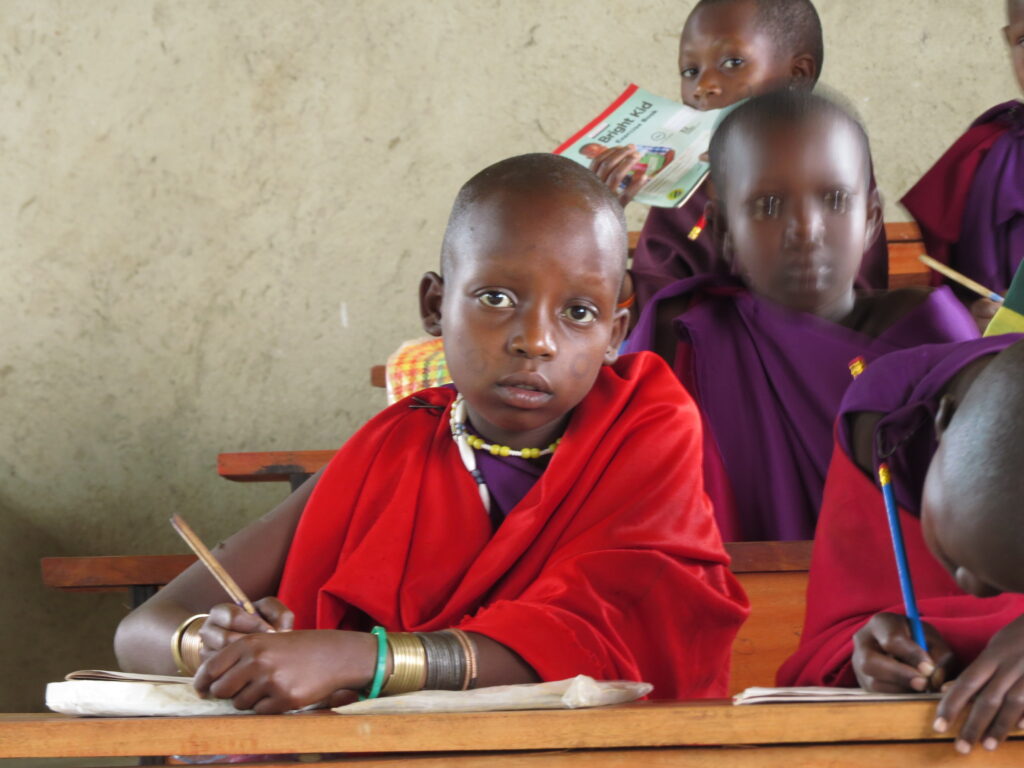When School Becomes a Privilege: The Hidden Crisis in Rural Education

In Kiteto and many other rural parts of Tanzania, going to school is no simple part of childhood. It’s a daily battle — one that thousands of children fight not just with determination, but with sacrifice. Education, in these areas, is no longer just a right on paper. It has become a privilege — one that many can only hope for, but never truly reach.
A Morning that Begins in the Dark
Long before the sun rises, small feet begin their journey. Children, some no older than seven or eight, start walking miles to reach their nearest school. There are no school buses, no packed lunches, and often, no shoes. The roads are dusty, the paths lonely, and the risks are real. Whether it’s extreme weather, fatigue, or the responsibility of fetching water before they even begin their trek, each day presents a choice between survival and schooling.
Those who manage to reach the school grounds are greeted by another kind of struggle. Classrooms, if they exist at all, are overcrowded, dilapidated, and unequipped. Some children sit on stones or the bare floor, sharing tattered books between groups of four or five. In some schools, one teacher juggles multiple subjects and dozens of children, doing the best they can with the little they have. Teaching under a tree is not an anecdote — it’s a daily routine.
Learning Against the Odds
Imagine trying to grasp reading or math in a class of 100 students, where the only chalkboard is cracked, and where teaching stops not because a lesson is done, but because there’s no chalk left. Many schools lack the most basic necessities: not just books and pens, but even toilets, clean water, or a midday meal. Without these, the promise of education starts to crumble. Girls, especially, face an even greater barrier — often pulled from school at puberty due to cultural expectations, early marriages, or the absence of menstrual hygiene support.
It’s not just about attendance. It’s about what kind of education is possible when the structure itself is broken. Children struggle to read by age ten, not because they lack intelligence, but because the system they’re placed in has been left unsupported, ignored, and stretched far beyond its limits.
The Consequences Beyond the Classroom
The cost of this education crisis extends far beyond the school gate. Illiteracy perpetuates poverty. Without basic education, young people are left unequipped to navigate life, let alone contribute meaningfully to their communities. Poor education limits job prospects, weakens public health awareness, and reinforces cycles of inequality — especially for girls and young women.
We cannot talk about sustainable development, or community progress, without acknowledging this urgent need: children need to learn, and schools need to function.
What Angaza Maisha is Doing Differently
At Angaza Maisha Foundation, we see education not as a project, but as a pathway to dignity. Our work in rural schools begins by listening. We listen to children who say they want to learn. We listen to parents who want better for their children but are trapped by poverty. We listen to teachers who persevere despite having no resources.
With community collaboration, we are helping provide essential school materials, supporting students at risk of dropping out, and building capacity through mentorship and awareness programs. We are not simply filling gaps — we are working toward a future where no child sees education as an impossible dream.
Hope is a Child Who Doesn’t Have to Walk Away
Change is slow, but it is happening. In schools we’ve supported, enrollment is rising. Girls are staying longer. Teachers feel seen and supported. And most importantly, children are beginning to believe that their dreams matter.
Hope lives in the voice of a child who no longer has to sit outside because there’s space in the classroom. It lives in the confidence of a girl who speaks up because someone handed her a book and told her she matters. It lives in the quiet determination of a teacher who stays after hours because now, there’s something worth staying for.
You Can Be Part of This Story
The crisis in rural education is not far away. It’s here — just beyond the city lights, beyond the paved roads. And it is not beyond repair.
You can support this movement by helping us provide books, renovate classrooms, train teachers, or sponsor a student’s journey. Every effort counts — not just as charity, but as justice.
Let’s not allow school to remain a privilege for the lucky. Let’s make it a promise kept for every child.
